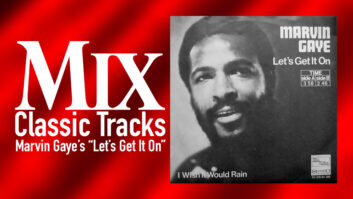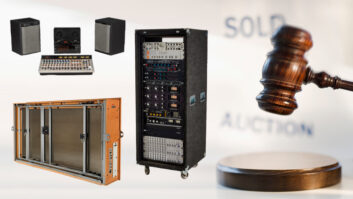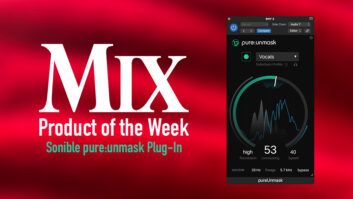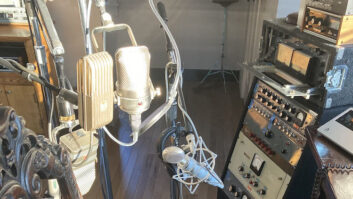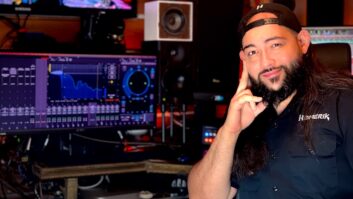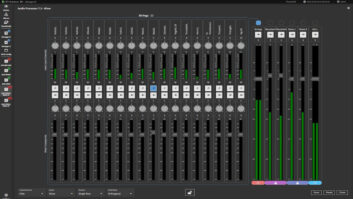
After 30 years of operation, Cakewalk Music Software shut down in November. As a Cakewalk Sonar user since 2000, it was not a happy moment for me. (However to be fair, Microsoft has always been good about backward compatibility. It’s likely that Sonar will continue to work “as is” for at least several more years.)
How could one of the seminal software companies have come to this? There’s no single reason, but having been “orphaned” by software before (and I’m sure it will happen again), I do have some observations that may helpful to those of us who depend on music software to make a living—including the companies that make the software.
The ecosystem matters: Programs with significant market share tend to be part of an ecosystem. Steinberg has interfaces and is interwoven with Yamaha, Ableton Live defined its own market and offers add-ons as well as hardware control surfaces, MOTU’s interfaces help support Digital Performer, Avid has always been about interfaces and control surfaces, and so on. PreSonus is a good example of how an ecosystem changes everything: When the company announced it was introducing a DAW, many in the industry laughed and said “Yeah, right, like the world needs another DAW” and predicted an epic fail. But because it became part of a developed ecosystem that integrated with mixers, interfaces and even live performance—and because PreSonus needed software to ship with its interfaces anyway—it did well enough not only to attract new users, but start chipping away at market share held by some other companies.
Be versatile: Although Sonar was my primary DAW, I recorded numerous classical projects in a Pro Tools studio, used Studio One’s project page for album assembly, Ableton Live for live performance, and have Logic on my MacBook Pro when traveling. Just as we need to backup data, we need to backup our skill set. I don’t need to slam on the brakes and switch to another DAW; it’s more like a crossfade, as I finish Sonar projects in Sonar, start new projects in a different program, and continue using Sonar for functions it does best (e.g., creating loop libraries).
Practice “universal backup”: When archiving projects, in addition to backing up the project file, save the raw audio for all tracks (either as one long file per track that always starts at the beginning, or Broadcast Wave File clips so they line up on the timeline), as well as rendered audio for all tracks with effects, automation changes, etc. If you import the latter tracks into a DAW, unless there are panning law issues, the project should play back exactly as it did when it was archived. However, if you have second thoughts about a track, pull up the raw track and start over in the context of the other tracks. Given inexpensive storage, having these two flavors of audio files is cheap insurance against future incompatibilities.
Content matters: Aside from Avid, Native Instruments has better revenue than any other music software company—yet NI doesn’t even make a DAW. Although its hardware is a major factor in this success, it made products designed to work with any DAW—that’s a much bigger market than selling to the users of a single DAW. Kontakt is the best-supported sampler in the industry, and that’s no accident. Native Instruments did everything possible to make sure there was plenty of content, and it snowballed. Peeople bought Kontakt because it had great content, which encouraged people who made content to support Kontakt because it had a big installed base, so more people bought Kontakt, so more people made content…rinse, lather, repeat. Kontakt is my go-to sampler because I don’t think it’s going anywhere.
Listen to the forums—but ignore the forums: Here’s a suggestion for music software companies. Yes, user forums are a hassle. There are vocal minorities who have specific agendas and won’t give up, and they—as well as the occasional toxic malcontents—need to be ignored. But there are legitimate users with genuine concerns, and they’re a company’s “canaries in a coal mine.” These are the people who are a free focus group giving free consulting—ignore them at their own peril. However, running a forum requires some serious skills. Companies who want to get the most out of a forum need moderation, and the developers need to show up from time to time as well to put their finger on the pulse of the community. Although some consider forums passé in the age of Facebook, they can be a powerful asset—and an early warning system—for companies.
Check out author/musician Craig Anderton’s web site at craiganderton.com, and YouTube channel at youtube.com/thecraiganderton.
